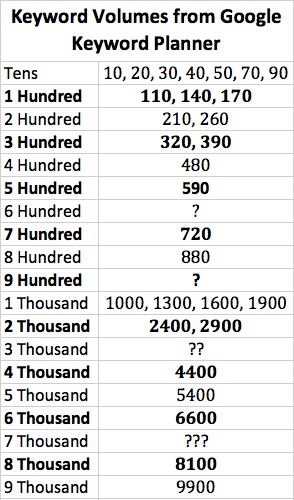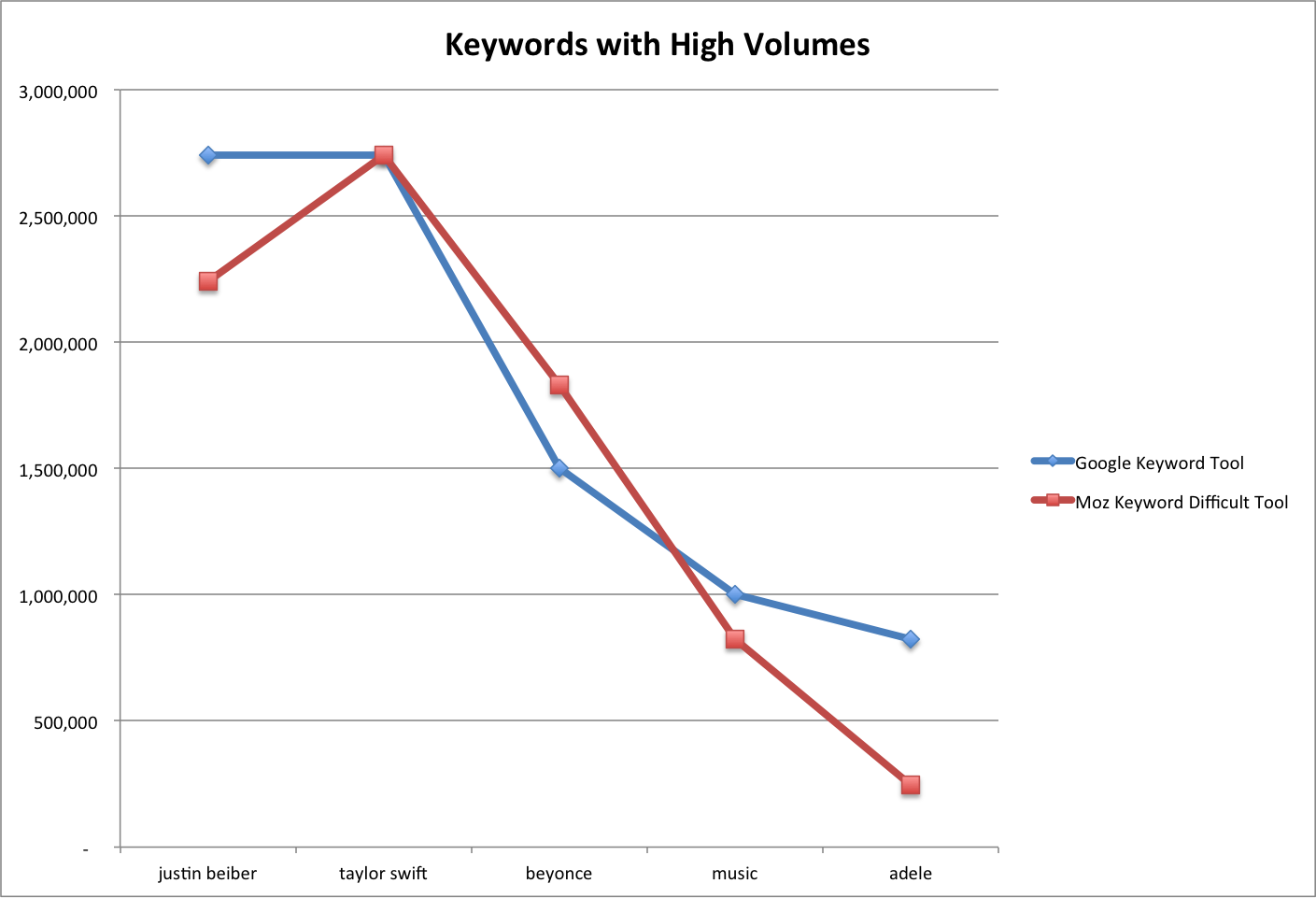Last week on Facebook, we shared an interesting article by Russ Jones about Google Keyword Planner (KWP). Jones discussed 4 “dirty secrets” that unveiled the keyword tool’s inaccuracies. But before you get ahead of yourself, Jones continues to – despite its shortcomings – encouraging webmasters to use Keyword Planner with the caveat that they use a secondary tool to make up for what Google’s tool lacks.
After reading Jones’ article, I had a profound palm-to-forehead moment as I recalled the hours upon hours I have spent conducting research for various clients using Google’s Keyword Planner as my only means of gathering search volume data. Granted, I compiled a list of keywords from other sources, such as SEMrush, Google Search Console, and Ubersuggest, in order to diversify my list of search terms, but the actual search volumes all came from KWP.
 The first two “dirty secrets” Jones explains are rounded averages and traffic buckets. Two similar keywords might produce the same average search volume according to KWP, but the actual search volumes could vary by thousands – in Jones’ example, about 10,000. This ties into Google’s use of traffic buckets.
The first two “dirty secrets” Jones explains are rounded averages and traffic buckets. Two similar keywords might produce the same average search volume according to KWP, but the actual search volumes could vary by thousands – in Jones’ example, about 10,000. This ties into Google’s use of traffic buckets.
It seems that Google’s keyword volume algorithm rounds – in some cases, heavily rounds – keywords to fit these buckets. Have you ever noticed how Google usually spits out the same sets of volumes? I looked back at my keyword research for various clients and found the volume numbers you can see to the left.
Google starts expanding the gaps between search volumes as soon as you hit 50. That’s a pretty low starting point. The higher the volumes, the bigger the gaps. The next several “buckets” I found are: 12,100 to 14,800 to 18,100 to 22,200 to 27,100 to 33,100. Those are gaps of 2,700, 3,300, 4,100, 4,900 and 6,000, respectively. So you can image that the gaps for terms with really, really high search volumes can become pretty significant.
I did my own research to see if I could find huge disparities in search volumes for such keywords, and here’s what I saw.
“Justin Bieber” and “Adele” have a difference of over half a million searches. That’s huge! In the next graph, you can see more evidence of differences between Google and Moz. (I did use another tool to confirm Moz’s volume results. The tools is called Keyword Eye. In most cases, it produced the same numbers as Moz. To simplify the graphs, I only used KWP vs Moz.)
As the keyword volumes decrease, the number of searches from one bucket to the next decrease as well, so precision between the two tools increases.
To help you with keyword research, I put together a list of other tools that you can use to double check your average monthly search volumes as well as to get more keyword ideas.
Google Keyword Planner – Get average monthly search volumes.
Google Search Console – You can use GSC to see what terms your or a client already get impressions for. You might be able to improve rankings for some of these if they yield desirable search volumes and competition rates.
SEMrush – See what organic keywords you, a client, and competitors rank for to get keyword ideas.
Moz Keyword Difficulty Tool – If you’re willing to pay, Moz provides a lot of really useful tools. It’s keyword tool gives you search volumes and a rating for how difficult it might be to rank for a term.
Keyword Eye – This tool is a combination of Ubersuggest and Keyword Planner. Type in a word, and it gives you related terms as well as their search volumes.
Ubersuggest – Type in a word, and this tool will give you longer tailed keyword ideas
WordStream – This tool will give you average keyword volumes, but only if you pay for it. If you don’t pay for it, you can still use it to get other keyword ideas.
Mergewords – To save yourself some time, this tool lets you put words into columns and combines them for you to give you a list of all the different combinations.
Keyword.io and Keyword Discovery – A few other suggestion tools.
SEO Book – This is free once you create an account
WordTracker – This gives you keyword ideas, and you can also use it for PPC.
Serpstat – Get data on your competitors.
I guess the lesson here is, don’t rely solely on Keyword Planner or any other tool. Use two tools that will provide you with search volumes to get a better sense for which terms will be the most advantageous.




